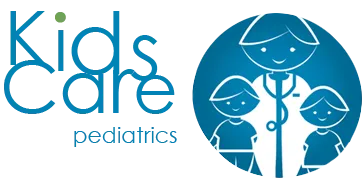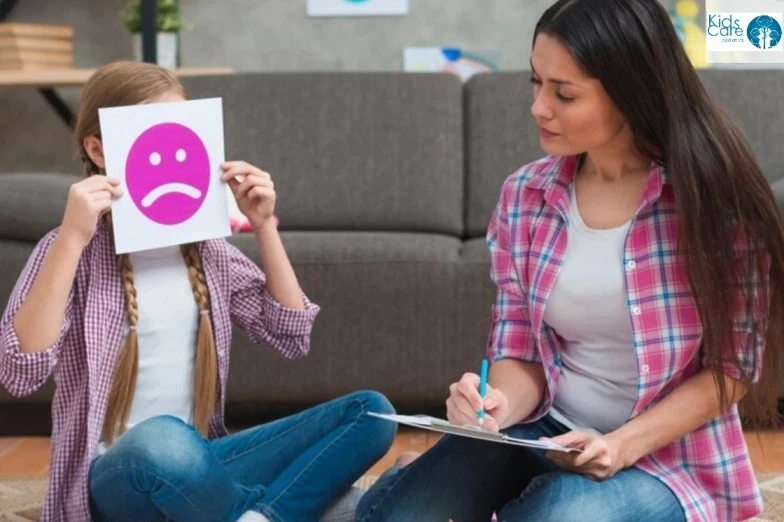A child’s mental health is just as crucial as their physical well-being, yet symptoms often go unnoticed. Children experience a range of emotions, but when persistent patterns of distress, anxiety, or disruptive behavior emerge, it could signal an underlying mental health concern. Identifying these signs early and taking appropriate action can significantly help a child’s life.
Understanding Child Mental Health
Mental health in children refers to their emotional, psychological, and social well-being. It influences how they think, feel, and behave. A healthy mental state allows children to develop social skills, cope with challenges, and grow into well-adjusted adults. However, mental illnesses in children are often misunderstood. Recognizing psychiatric disorders in children early can lead to better outcomes with appropriate interventions.
Most Common Mental Disorders in Children
There are various disorders that can hinder a child’s mental and emotional state. Here are some of the most prevalent mental disorders:
Anxiety disorders
Anxiety disorders are among the most common mental illnesses in children. They include:
- Generalized Anxiety Disorder (GAD): Excessive worry about everyday events.
- Social Anxiety Disorder: Intense fear of social situations and judgment.
- Separation Anxiety Disorder: Extreme distress when away from parents or caregivers.
Mood Disorders
Childhood mood disorder goes beyond sadness; it affects daily activities and relationships. Signs include persistent sadness, irritability, withdrawal from loved ones, and loss of interest in previously enjoyed activities. It also includes bipolar disorder, where children experience extreme mood swings.
Attention Deficit Hyperactivity Disorder (ADHD)
ADHD affects a child’s ability to focus, control impulses, and regulate activity levels. Symptoms include:
- Difficulty paying attention
- Impulsivity
- Hyperactivity (constantly moving, fidgeting, excessive talking). Children with ADHD often struggle in school and social settings, making early intervention essential.
Autism Spectrum Disorder (ASD) and Emotional Regulation
ASD affects communication, social interaction, and behavior. Children with ASD may:
- Struggle with emotional regulation
- Exhibit repetitive behaviors
- Have difficulty understanding social cues
- Show intense focus on specific interests. Supporting children with ASD involves therapies that help with communication and emotional control.
Trauma and Post-Traumatic Stress Disorder (PTSD)
Children who experience traumatic events (abuse, neglect, accidents, or witnessing violence) may develop PTSD. Symptoms include nightmares, flashbacks, severe anxiety, and emotional numbness. PTSD in children can impact their ability to feel safe and trust others.
Childhood Anxiety
Anxiety manifests in various ways, such as excessive worry, avoiding social situations, or needing constant reassurance. Untreated anxiety can lead to academic struggles, social isolation, and low self-esteem.
Obsessive Compulsive Disorder in Children (OCD)
Children with OCD experience intrusive thoughts (obsessions) and perform repetitive behaviors to reduce anxiety. Common compulsions include excessive hand washing, counting, and checking things repeatedly. OCD can be distressing and interfere with daily life.
Depression in Children
Depression isn’t just about feeling sad. It affects energy levels, sleep, and motivation. Signs include:
- Persistent sadness
- Fatigue
- Changes in appetite
- Suicidal thoughts
Self-Harm in Children
Self-harm is a serious concern among children and adolescents. It often arises as a coping mechanism for overwhelming emotions. Common forms include:
- Cutting or scratching the skin]
- Burning
- Hitting themselves
Children who participate in self-harm may hide their injuries and reduce contact with others. Professional support is essential in addressing underlying emotional distress.
Recognizing the Signs of Child Mental Health Issues
Early signs of mental illness in children vary but may include:
- Persistent sadness or irritability
- Drastic mood changes
- Frequent tantrums or aggression
- Difficulty concentrating
- Changes in sleep or appetite
- Withdrawal from friends and family
- Repetitive behaviors or obsessive thoughts
- Self-harm or suicidal thoughts
How Parents and Caregivers Can Support Their Child
- Open Communication: Encourage children to express their feelings without fear of judgment.
- Create a Safe Environment: A supportive home helps children feel secure.
- Teach Coping Skills: Deep breathing, mindfulness, and positive affirmations can help manage stress.
- Limit Screen Time: Excessive use of screens can impact mental health. Encourage outdoor play and hobbies.
- Promote a Healthy Lifestyle: A balanced diet, exercise, and sleep improve mental well-being.
- Encourage Social Interaction: Friendships and activities boost confidence and emotional health.
When to Seek Professional Support
If a child’s mental health symptoms persist and interfere with daily life, professional intervention is necessary. Consider seeking help if:
- Symptoms last for more than a few weeks
- The child struggles in school or social settings
- Self-harm or suicidal thoughts arise
- Behavioral issues escalate
Mental health professionals, including pediatric psychiatrists, psychologists, and counselors, provide tailored treatment plans to support children’s well-being.
Conclusion
Children’s mental health deserves as much attention as their physical health, a principle strongly supported by Kids Care Pediatrics. By recognizing early signs, offering support, and seeking professional help, parents and caregivers, in partnership with resources like Kids Care Pediatrics, can help children navigate their mental health challenges. Every child deserves the chance to grow, thrive, and not be hindered by their mental state. Let’s prioritize their mental health and create a supportive environment where they feel understood and valued, with the compassionate care of Kids Care Pediatrics as a valuable ally.
FAQs
Q. What are the five most common mental disorders in children?
Ans: The five most common child mental health disorders include anxiety disorders, disruptive behavior disorders, ASD, eating disorders, and ADHD.
Q. What are the signs of mental illness in a 5-year-old?
Ans: The signs of mental illness in a five-year-old can be persistent sadness, constant changes in eating and sleeping habits, and withdrawal from activities.
Q. List of childhood disorders in the DSM-5.
Ans: DSM-5 is the Diagnostic and Statistical Manual of Mental Disorders, 5th Edition. The DSM-5 includes a wide range of childhood disorders, including neurodevelopmental disorders, disruptive behavior disorders, and feeding and eating disorders.

